Seeking a Templestay Vision Mutually Beneficial to Local Communities
Discussions between Abbots of Templestay Temples in Gyeongnam Province and Local Governments
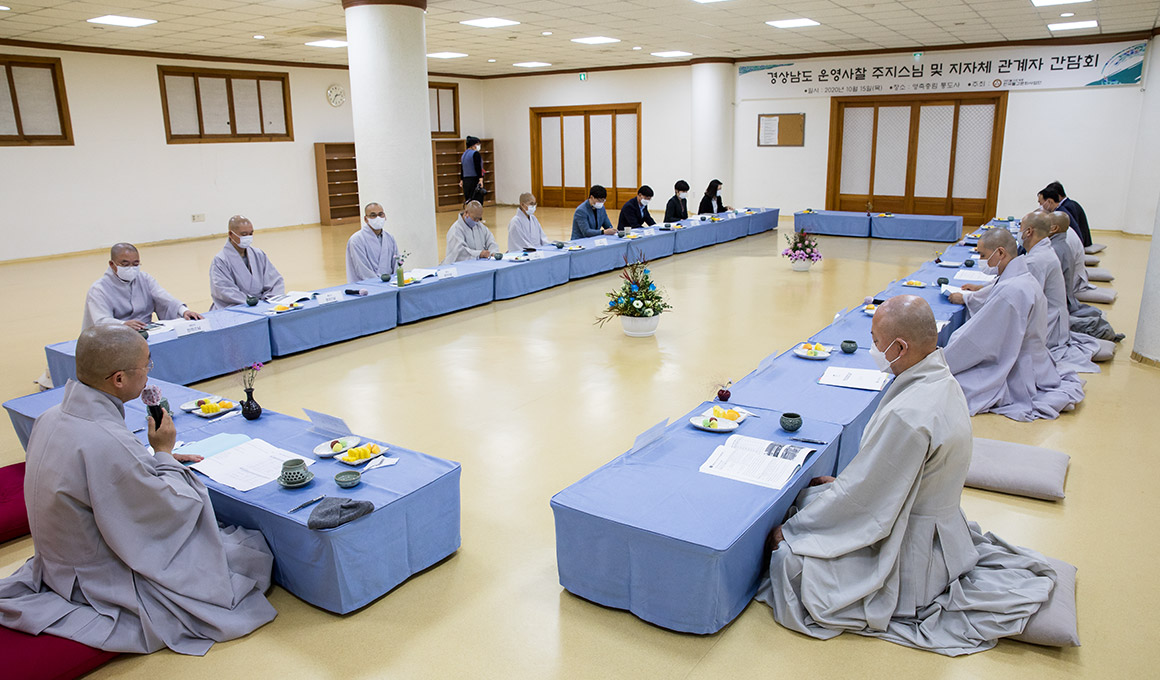
With the theme “A Journey of Happiness for Myself,” Korea’s Templestay program has provided opportunities for anyone to experience Korean Buddhist monastic life and culture, as well as its 1,700 years of tradition. Since its launch in 2002, about 5.5 million people, including 640,000 foreigners, have participated in a Templestay program, which has also provided fresh momentum to the promotion of local tourism in Korea. The Cultural Corps of Korean Buddhism (hereafter the Cultural Corps), which oversees the program, recently arranged for discussions between the abbots of Templestay temples in Gyeongnam Province and local government officials in an effort to agree on a Templestay program vision for the future that will be mutually beneficial to the local communities.
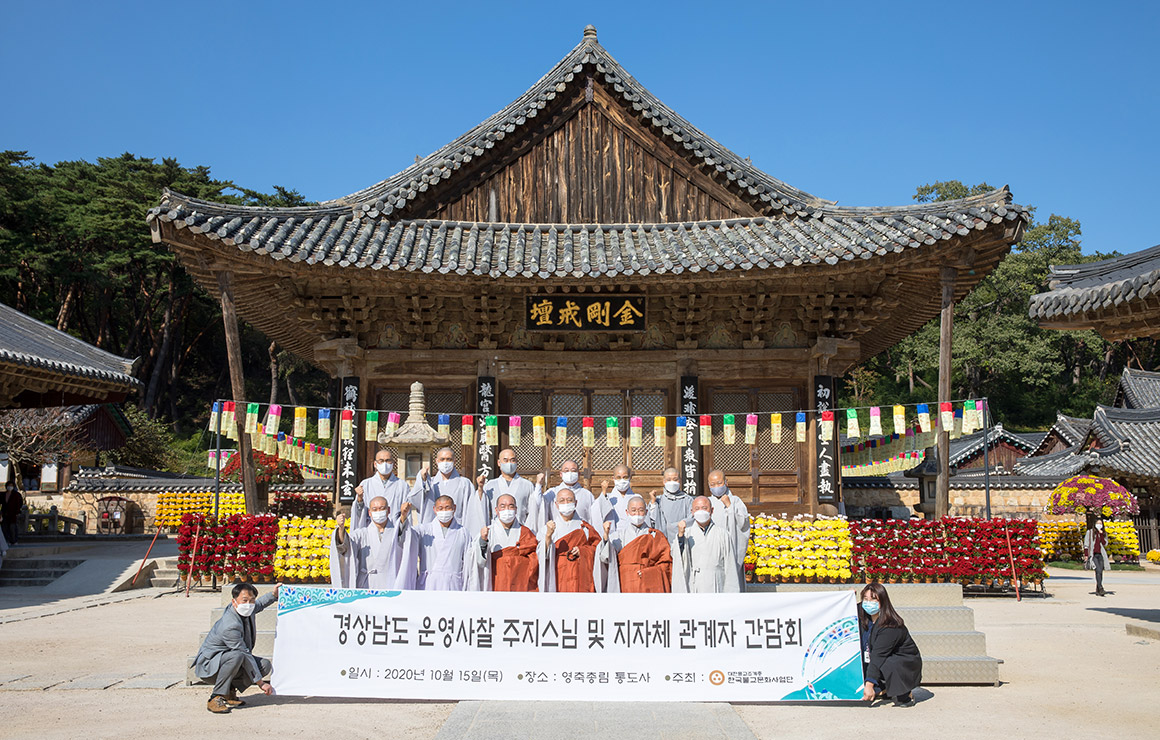
Held on Oct. 15 at Tongdosa Temple’s Teaching Hall, the lively discussion was attended by relevant authorities, including: Cultural Corps Director Ven. Wongyeong; Tongdosa’s Ven. Abbot Hyeonmun; Ven. Jingak, Head of General Affairs at Haeinsa Temple; Ven. Vice Abbot Seonmun of Ssanggyesa Temple; Ven. Abbot Mugyeong of Daegwangsa Temple; Ven. Abbess Gihyeon of Daewonsa Temple; Ven. Abbess Giyeong of Munsuam Hermitage; Ven. Abbot Beoban of Seongjusa Temple; Ven. Abbot Wongak of Okcheonsa Temple; Ven. Dongchan, Templestay Guiding Teacher of Yonghwasa Temple; Ven. Abbot Jingak of Pyochungsa Temple; Ven. Yeongsan, Head of Monastic Training at Tongdosa Temple; Deputy Director Jeong Yeong-gyun of the Ministry of Culture, Sports and Tourism; Supervisor Lee Jae-cheol of the Gyeongnam provincial government; Supervisor Kim Jin-il of the Yangsan municipal government; and Action Officer Lim Jin-hui of the Hadong County government.
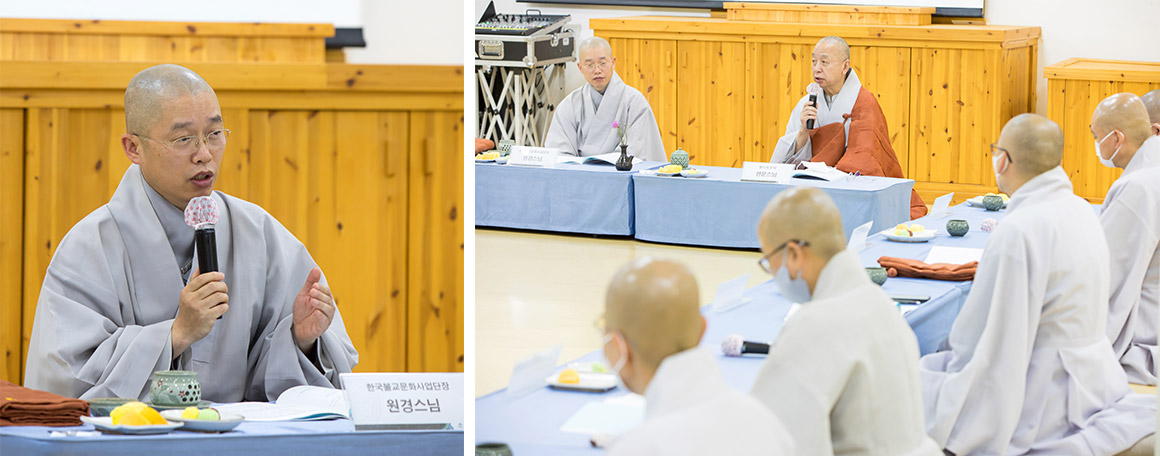
In his opening address, Ven. Wongyeong, Director of the Cultural Corps, stated, “Templestay has been chosen as one of the ‘ten major icons representing South Korea,’ by the National Brand Committee. Its development was noted by the OECD report which introduced Templestay as ‘the world’s five major tourism programs successfully operated under harmonious collaboration between officials and people.’” He further added, “The city of Seoul, as well as Chungnam and Gyeongbuk Provinces, have strengthened support for the Templestay program because they consider it a tourist program to be developed for the next generation. In this way, the concerted efforts of local governments, residents and temples contribute to local development. I hope all of you act together so that the Templestay program can maintain sustainable growth together with the local community.”
Ven. Abbot Hyeonmun of Tongdosa Temple said in his welcoming speech, “It is encouraging that Templestay has presented a new travel model in association with local tourist resources. In addition, our consistent provision of compassionate Templestay programs for the underprivileged resonates with the local community.”
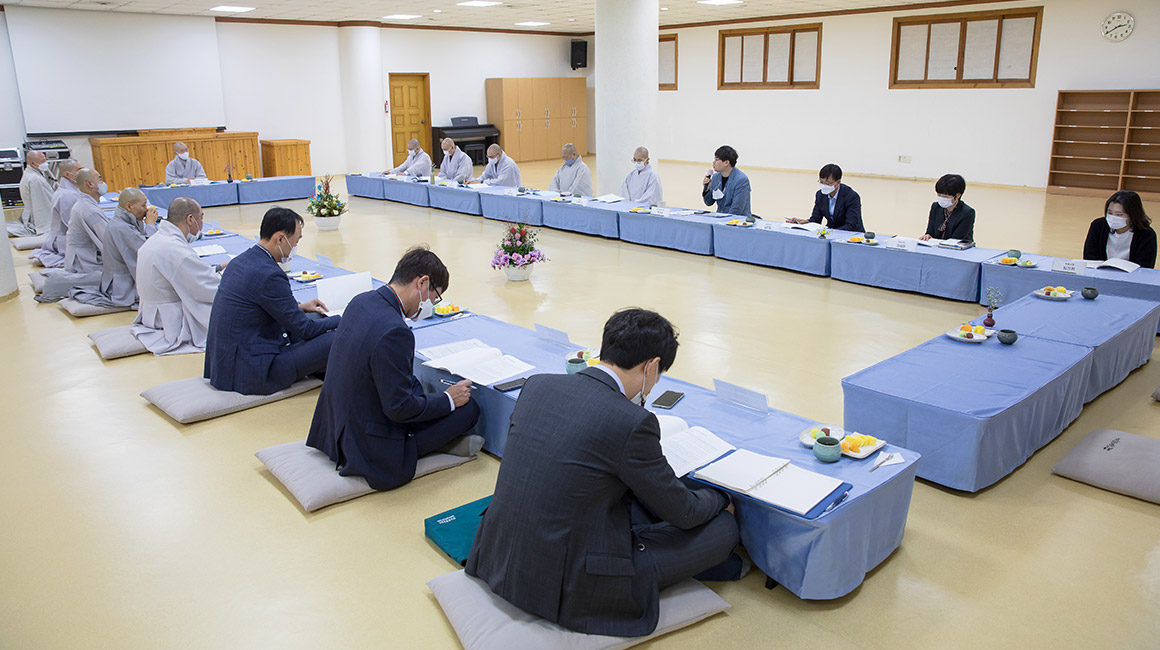
Next in order was the report on the revision of ordinances and enforcement regulations regarding the designation and operation of Templestay temples. The revision was needed to reflect the changing environment of Templestay operations since the law was passed in 2012. Primary changes include giving the status of “religious administrative worker” to Templestay operation crews and strengthening the legitimacy and stability of the Templestay program by tightening the qualifications to be designated a Templestay temple.
Since the global coronavirus pandemic began, the compassionate efforts of Templestay have come forward to help forge a great social consensus. The Cultural Corps has launched special Templestay projects related to coronavirus, free of charge, which have received enthusiastic response. Under the concerted efforts of 79 temples, the Pat-Pat Templestay program has been established as a service to healthcare workers and related public officials; it began on Mar. 21 and will end on Oct. 31. As of Oct. 6, the Pat-Pat Templestay program had logged 493 participant-days by 344 individuals. Offered by 80 temples, the Comforting Templestay program for workers in small businesses and the travel industry began on Jun. 1 and will end on Oct. 31. As of Oct. 6, it had recorded 2,327 participant-days by 1,163 individuals.
The Temple Food Box Lunch Project was also a big success. Between Mar. 10 and 28, the Cultural Corps delivered 2,390 box lunches to coronavirus healthcare workers and the underprivileged. Another round of box lunch deliveries is planned. Meanwhile, the Cultural Corps had already been operating a “Sharing Templestay” program to benefit the underprivileged even before the outbreak of COVID-19.
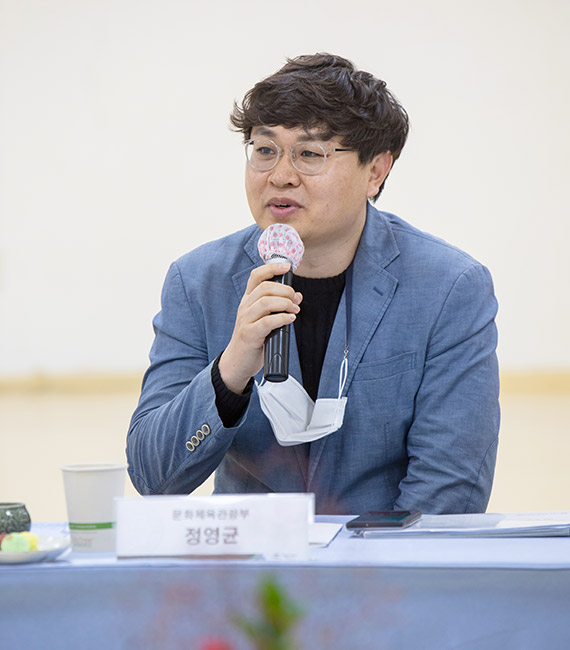
Attendees at the discussion saw that these Templestay projects for the common good had a wholesome influence on local communities and agreed to work to develop them. Deputy Director Jeong Yeong-gyun of the Ministry of the Culture, Sports and Tourism said, “I appreciate that the Templestay program shows compassion for the wider community, including the underprivileged. I will explore ways to support the Templestay program and further its development based on careful examination of the Culture and Tourism Promotion Act.” Supervisor Lee Jae-cheol of the Gyeongnam provincial government said, “I will encourage inclusion of the Templestay program to FAM (familiarization) tours. I will also explore offering incentives when tourist businesses in our province include Templestay in their development of new tourism projects.”
The discussion concluded by presenting a broader vision for the Templestay program and in agreement to develop it side by side with local communities.
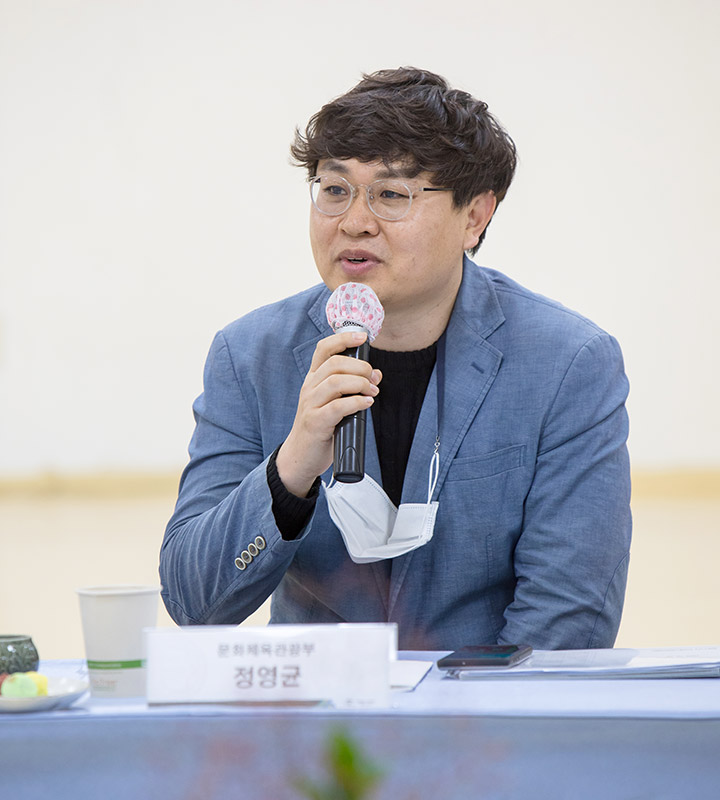
Attendees at the discussion saw that these Templestay projects for the common good had a wholesome influence on local communities and agreed to work to develop them. Deputy Director Jeong Yeong-gyun of the Ministry of the Culture, Sports and Tourism said, “I appreciate that the Templestay program shows compassion for the wider community, including the underprivileged. I will explore ways to support the Templestay program and further its development based on careful examination of the Culture and Tourism Promotion Act.” Supervisor Lee Jae-cheol of the Gyeongnam provincial government said, “I will encourage inclusion of the Templestay program to FAM (familiarization) tours. I will also explore offering incentives when tourist businesses in our province include Templestay in their development of new tourism projects.”
The discussion concluded by presenting a broader vision for the Templestay program and in agreement to develop it side by side with local communities.





